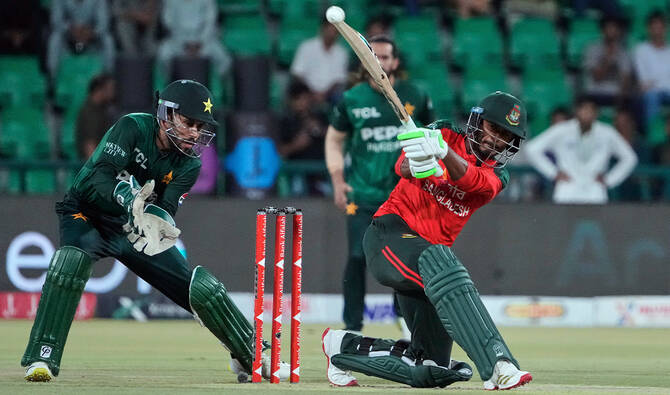PESHAWAR: Security forces foiled an attack by militants near the outer wall of a military cantonment in northwestern Pakistan early Monday, wounding seven civilians, police said, amid a surge in such assaults in recent months.
The attack took place in Bannu city in the Khyber Pakhtunkhwa province bordering Afghanistan. The province has witnessed a surge in militant attacks in recent years.
“Terrorists mounted the attack on the Cantt at around 5:00 am, which was repulsed by the security forces,” Ziauddin Ahmed, the district police officer (DPO) for southern Bannu district, told Arab News. “As per initial information, seven civilians were wounded in the attack.”
He said a clearance operation was still ongoing and any casualties, including of soldiers, could only be confirmed after its conclusion. He added that sporadic gunfire could still be heard near the Bannu Cantt.
Locals said militants had tried to force their way into the Cantt and had detonated an explosive-laden vehicle on the road between the supply depot and the outer wall of the cantonment.
AP reported, quoting police, that a suicide bomber detonated an explosives-laden vehicle and at least one of his accomplices exploded his vest near the outer wall of Bannu Cantt, wounding eight civilians and damaging nearby homes.
Policeman Tahir Khan told AP security forces quickly responded to the “coordinated attack” and foiled an attempt by the insurgents to enter the sprawling military facility which mainly houses offices of the military and homes of security forces. He also said army helicopters and ground forces were still reaching the area to track more militants.
In a statement shared with media, the Jaish-e-Fursan (Hafiz Gul Bahadur Group), a Pakistani Taliban or TTP faction, claimed responsibility for the attack.
Islamabad blames an ongoing surge in militant attacks on neighboring Afghanistan, saying TTP leaders have taken refuge there and run camps to train insurgents to launch attacks inside Pakistan.
The Afghan Taliban rulers in Kabul say rising violence in Pakistan is a domestic issue for Islamabad and it does not allow militants to operate on its territory.


















